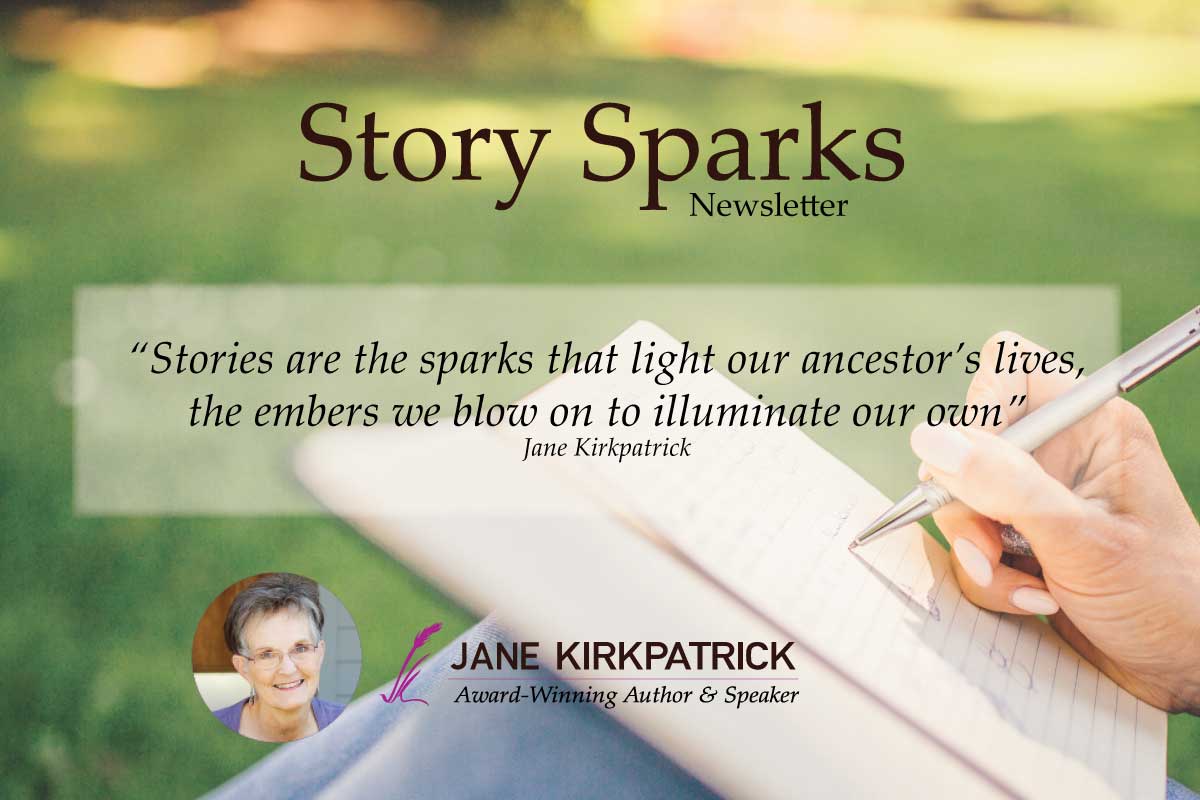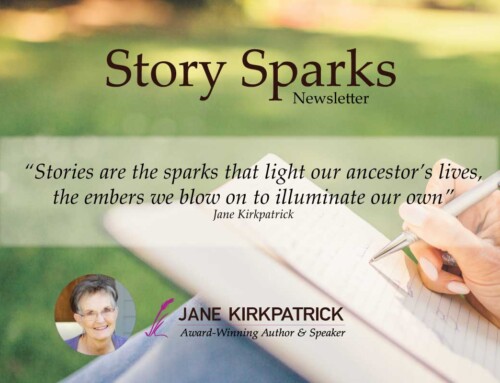June 2021 Story Sparks
“People without hope do not write novels. Writing a novel is a terrible experience, during which the hair often falls out and the teeth decay. I’m always irritated by people who imply that writing fiction is an escape from reality. It is a plunge into reality and it’s very shocking to the system.” Flannery O’Connor, Mystery and Manners.
She’s captured where I am right now, writing novel number 29, book 40, in the year of the 30th anniversary of my first writing venture, Homestead. Fiction is a shock to the system. It wakes me up at 3:00 am with plot points swirling. It keeps me working on the ways to face anxiety each time I sit to write wondering if I can— but sit there any way, even when cleaning the oven beckons.
But each of us must be willing to take next steps into reality even when we can only see one step in front of us, even when it’s something we’d rather not do. This resistance for me at least is pandemic related. Reality can be shocking.
 For instance, a week ago, a friend and I (fully vaccinated and finally able to hug each other hello) discussed getting new bras. Was it time to go out among our peers, into a store, trying on intimate apparel? We decided we were ready. We made an outing of it and chose Nordstroms as that store has “consultants” when it comes to fitting bras. I’ve lost 24 pounds since I bought my last bra (and that was online) so I figured I would need some help. Remember Mr. Rogers advised in a time of trial to look for the helpers. Nordstroms is famous for its helpers.
For instance, a week ago, a friend and I (fully vaccinated and finally able to hug each other hello) discussed getting new bras. Was it time to go out among our peers, into a store, trying on intimate apparel? We decided we were ready. We made an outing of it and chose Nordstroms as that store has “consultants” when it comes to fitting bras. I’ve lost 24 pounds since I bought my last bra (and that was online) so I figured I would need some help. Remember Mr. Rogers advised in a time of trial to look for the helpers. Nordstroms is famous for its helpers.
We made our selections, our consultant assisting — she had several other women who had the same awakening that day. She kept apologizing for not being able to help us more. “So many women bra-shopping,” she said. Ready for a dressing room, she was shocked none was/were available. And when we finally got a room, we were amazed that we could hear chatter up and down the rooms of women talking about bras! Not dresses or pants they were trying on — bras. (My step-daughter said she’d gone bra-shopping the same day in Florida — we had not conferred about our lingerie status.) She found one for ten bucks while the biggest shock I had was that my choice was forty dollars — a cup. Sticker shock took on a whole new meaning.
But being out was grand. Of course discovering that prices have gone up during the pandemic isn’t the shock that really matters. It’s not what O’Connor meant about that plunge into reality and how fiction both demands it and can help us through the challenges. I think a bigger shock is to once again have to discover if we have the courage to take the next steps even when we don’t know if things will work out. Most of us are tired after these months of adaptation, and facing newness can seem overwhelming.
Novelist E.L. Doctorow wrote that facing that anxiety of the blank page was like “driving a car at night. You can never see further than your headlights, but you can make the whole trip that way.”
As we face a changing world, keep your headlights on to bring light to the shocking experiences you might face. Draw on the wisdom and the fact that you’ve endured a pandemic, for goodness sake! Such resilience you’ve demonstrated and I’d be pleased to hear of how you’ve done it. Just reply to this email with your story. You’ve fueled those headlights I suspect through faith and family and friends. Let’s keep plunging. Now back to work for me. I’ve got a blank page to fill. And a new bra to wear.
Wisdom Years
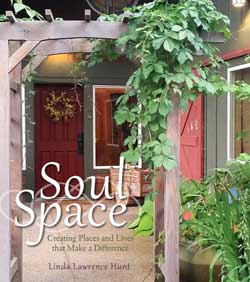 A writing friend, Linda Hunt (who introduced me to the story that became The Daughter’s Walk) has a wonderful website including inspirational stories. She writes a terrific newsletter too that is archived on her site.
A writing friend, Linda Hunt (who introduced me to the story that became The Daughter’s Walk) has a wonderful website including inspirational stories. She writes a terrific newsletter too that is archived on her site.
A former head of the Whitworth University Writing Program, Linda and her husband Jim also began the Krista Foundation for Global Citizenship to memorialize the death of their 25 year-old daughter serving with her husband in Columbia. She was killed in a bus accident in the 1980s. Linda had to take those next steps even when the pain of loss was so profound that seeing what was ahead must have looked like a heavy fog that no headlights could penetrate. But she found a way to go forward with writing. She also created a garden and respite for young people serving in difficult settings around the world. And she keeps finding new ways: as a public speaker, writing more books, doing a TED talk in Spokane where she lives. Her book about loss I especially appreciate is Soul Space Creating Places and Lives that Make a Difference. She is also a three time cancer survivor so she has a few insights about resilience, too.
Currently, she has a YouTube interview with Iconic writer Alice Walker perhaps best known for her novel The Color Purple. Linda introduced her as a writer in her “wisdom years.” I like that. The conversation is about writing but also resilience as Alice has a personal story that speaks of challenge and finding a way to move forward. Highly recommended. View the video here
The Rotary of El Cerrito hosted the interview. Good food for thought whether one is a writer or not.
I especially appreciated Alice Walker’s comment that The Color Purple had a theological premise. It fed my belief that writing is like praying for me. It’s where I feel the closest to the Divine. From reading Linda’s work, I suspect she might feel the same. You can too, even if it’s to write “Why am I writing? What question am I trying to answer?” The words will come and with them, wisdom.
Getting Back to In-Person
I had my first in-person presentation last month at the Women of Worth event sponsored by the Rolling Hills Community Church in Tualatin, Oregon. The group celebrates women over fifty. You can watch the video here. I spoke on “Hope is an Orientation of the Spirit.” Music and inspirational words precede my part. I’m at the 39 minute level if you’re time constrained. Enjoy.
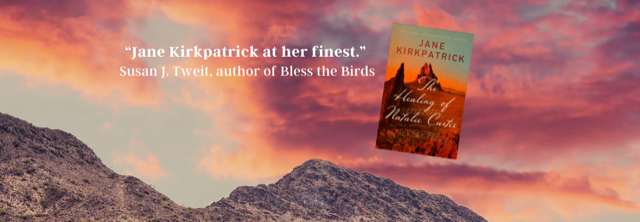
The Zoom world has allowed for new and otherwise not likely connections. For example, Sunriver Books and Music, an Independent Bookstore that has sold possibly more books of mine than any in the country, is hosting a Zoom event August 14th at 5:00PM Pacific, with me and two great authors: Craig Johnson of Longmire fame — the nine award-winning books and Netflix film seen around the world — and David Heska Wambli Weiden, Colorado debut author and enrolled member of the Sicangu Lakota Nation and author of Winter Count. Mark your calendars please!
I proposed a conversation about writing Native American Characters in Literature. It seemed a fitting subject as my fall release about Natalie Curtis concerns a white woman’s hope to break the Code of Offenses that prohibited Indian people from singing, dancing, speaking their language or follow traditional customs. I hope I have told all their stories well.
There’ll be more information about events — and this conversation — in my August Story Sparks. I’m taking a break in July.
On a personal note:

Word Whispering
I’m not sure if its pandemic related or not, but I’ve been reading quite a bit of late. Reading these are rewards for having written.
- The Weaver’s Revenge by Kathleen Ernst. This is the newest title in the Chloe Ellefson Mystery series set in the 1980s with Chloe as a historic preservationist married to Roelke, a small town cop and where murder follows her about from one century to the next. But we also learn a bit about marriage, relationships and the impact of decisions over time. In this story, the special insights are about Finnish weavers and the Upper Peninsula of Michigan. I have a friend who lives in that region now and I thought of her throughout this page-turner. I didn’t pace myself. Read it in two days
- The Nature of Fragile Things by Susan Meissner. Oh my, a book that begins with an interview of the main character by a detective following the San Francisco earthquake. Drawn in by this intriguing beginning, I found myself savoring this prosaic historical novel, falling in love with the characters and Susan’s remarkable writing gift. I’ve never met a book of hers I did not like. This one is especially poignant. My previous favorite of hers was The Shape of Mercy. This is my new favorite. I came to the last page reluctantly and said to Jerry, “I wish I could write like that.” It’s a treasure.
- Winter Count by David Heska Wambli Weiden. This is a mystery, set on an Indian reservation in 2020. Yes, it has violent scenes so be alerted. But it covers many contemporary issues that people in Indian country struggle with. Relationships of Tribal police to Federal law enforcement. Corruption. Drugs and alcohol abuse, hopelessness and missing Indian women, a national disgrace well-portrayed in the film Wind River. And like that film, this book is cinematic, fast-moving with characters one comes to care about despite their poor choices. We all make them. But good to find a community — sometimes family that can be a villain in itself — but that makes it possible to go on.
- Transient Desires by Donna Leon. Yes, I’m addicted to Inspector Brunetti’s life in Venice, his family, his choice of reading material, his meals, his sense of humor as he solves crimes. Having now visited Venice, the stories take on a different light. And the darkness of what tourists bring are crystallized inside this author’s work. There is a line in this book dealing with a boating accident that haunts when one of the characters says to Brunetti as they share a coffee break, “I’ll pay for this.” The author notes that her inspector later remembers this as the ending comes at a fierce and shocking pace.
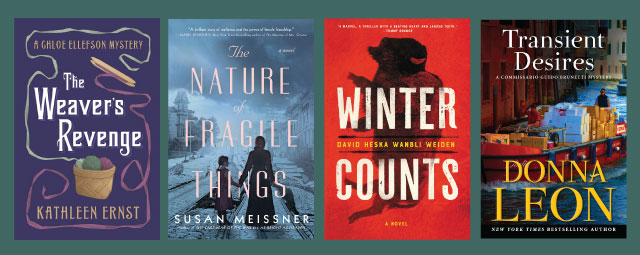
What’s on my To Read pile?
- Bob Welch’s Saving my Enemy. Bob can’t write a book that doesn’t make the reader both gasp and cry. The subtitle says it all: How Two WWII Soldiers Fought Against Each Other and Later Forged a Friendship That Saved their Lives.
- Milree Latimer’s Out of Place. (She’s a local and fine writer) This book about two sisters is set in Ireland, Canada and Europe during the first WW and I know it will capture family strains in poignant, evocative ways.
- Laurel Ann Hill’s yet to be released Plague of the Flies, of the genre Historical fantasy/magical realism/YA is on that list. Everyone needs to read outside their box once in awhile, correct? I took a writing class from Laurel Ann some years ago. I never forgot it!
- Fencing America by Ann Pontrelli with Ann Heide. It’s the first in a trio based on a family story. It promises to be intriguing.
- A Lady in Attendance by Rachel Fordham — a favorite author who writes sweet historical stories that end in romance and forgiveness that make me say to Jerry, “I wish I could write like that.”
- The Splendid and the Vile by Erik Larson. A WWII book about the year when Churchill was named Prime Minister and Hitler pushed at England’s coast and how America came into the war. (This is the one I’m reading at the moment). And finally a memoir
- Risk for Freedom by George Stastny. A fitting title with Memorial Day just passed. The book jacket says it is about one family’s dangerous journey from communist Czechoslovakia to the United States.
And that shall end my Story Sparks except for this update. We will celebrate Jerry’s 91st later this month. His cancer continues in remission for which we are grateful beyond words. This summer, I’ll help with a fundraiser for Burundi’s Indigenous People, the Batwa, who so far have escaped the scourge of Covid-19. And I’ll be plunging into reality through fiction. Oh, and it looks like there is progress with a film option for Homestead. Nothing signed, but conversations. The headlights are on; we are driving forward making me remember that little first grader who gave me this inspiring definition. “Powerful is when you want to quit, but you keep going.” And as we learned to do while on the homestead, we will. I hope you will too.
I leave you with this video link to close. Titled “We Were Soldiers Once…And Young.” It’s about reunions and you might gather up a tissue or two. I used several, but tears of joy are healing.
Happy summer, Jane
